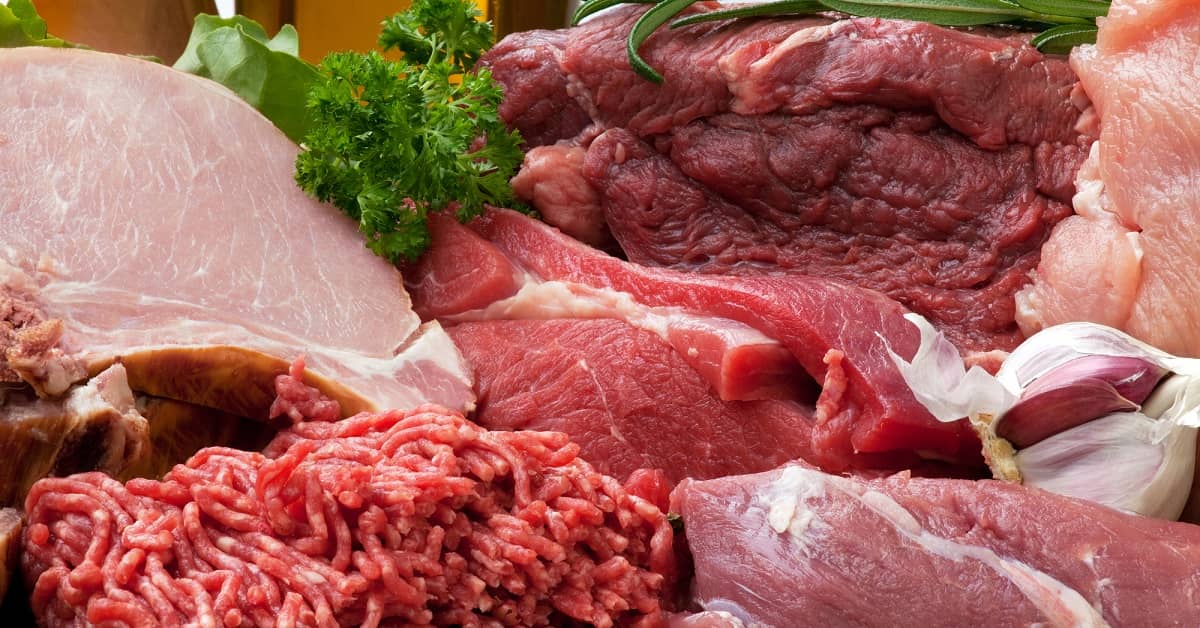
The actual scientific evidence goes back and forth: It increases cancer risk, but not much. It decreases your risk of diabetes and heart disease (if you eat it in place of carbs). It increases your risk of heart disease because of all the saturated fats.
So it goes. . .study after study, year after year, one contradicting another. It may not matter much because most Americans aren’t listening.
And something I never see mentioned is that it might really be the hormones and antibiotics fed to cattle that are the source of red meat's negative health effects. We may never know, because a population of lifelong organic meat eaters probably does not exist in the United States or Europe.
Processed Meats Another Story
Now, when it comes to processed meats like sausage, hot dog, ham, bacon and lunch meat, it’s a different story. The evidence is clear. These increase cancer risk.But on that subject, Americans really aren’t listening. Despite repeated warnings about processed meat, there's been no change in the amount consumed over the last 18 years.
Perhaps a new study will make people sit up. It shows that if you replace these foods with healthier options you will likely live longer. Here’s the evidence. . .
Red Meat Makes You 10% More Likely to Die
Despite conflicting evidence, studies do exist that link high red meat consumption, especially the processed variety, with an increased risk of chronic disease and premature death.But what isn't known is whether a change to red meat intake over time -- up or down -- has any effect on mortality. Would replacing red meat with other protein sources make any difference?
So researchers from Harvard and China collaborated to investigate the diets and lifestyles of about 81,000 male and female health professionals in the US.
They wanted to see if dietary changes from 1986 to 1994 predicted mortality in the following eight years from 1994 to 2002. This was then repeated for changes to the diet from 1994 to 2002, looking at death statistics from 2002 to 2010.
The findings, published in the British Medical Journal in June, suggest that an increase in total red meat intake (processed and unprocessed) over eight years raised the risk of death from all causes over the subsequent eight years by a full ten percent.
For unprocessed red meat such as beef and lamb, the mortality risk went up by nine percent when the health professionals ate at least half a serving more each day (42.5 grams/1.5 ounces). That’s not much of an increase in meat consumption, but it was enough to move the needle in the wrong direction on risk of death.
For processed meat, depending on the type eaten, half a serving ranged from 6.5 to 22.5 grams (0.25 to 0.8 ounces). An increase of this amount every day raised the risk of death by 13%, confirming the widespread belief that processed meat is more damaging.
The increased deaths came mainly from cardiovascular, respiratory, and neurodegenerative diseases. The results held no matter what the age of the participants, how physically active they were, or whether they smoked or drank alcohol, i.e. the researchers controlled for these factors.
Eat More Fish and Nuts
The researchers speculated the negative effects of red meat could come from saturated fat, cholesterol, iron, preservatives, and/or carcinogenic compounds produced by high-temperature cooking. It’s possible that one, two, or all of these factors combine to result in the bad stats for red meat.Nor is that list complete. Recently red meat was linked to a metabolite called trimethylamine N-oxide (TMAO), found in the gut, which is thought to promote heart disease.
Meanwhile, you may be wondering what the study found among participants who decreased their meat intake for eight years.
Decreasing intake of total red meat by at least one serving a day had no effect on mortality unless it was accompanied by an equivalent increase in the consumption of fish, poultry without skin, dairy, eggs, whole grains, vegetables or nuts.
In this case the risk of death fell a substantial amount, especially among people who upped their consumption of fish and nuts while cutting meat intake. A switch from unprocessed red meat reduced mortality by 17% when there was an offsetting increase in fish and by 19% when coupled with eating more nuts.
If a person replaced processed meat -- bacon and hot dogs, etc. -- with these healthier options, the figures rose even higher to 25% and 26%.
Study leader Frank Hu summed it up like this: "The take-home message from our study is that it is desirable to reduce consumption of red meat, especially processed meat and choose healthier sources of protein such as fish, nuts, whole grains and legumes instead."
I’m a Middle of the Road Guy on Meat
What do I do? I’m a moderate meat eater, maybe having meat five times a week out of 21 meals. In light of these new findings, I’ll probably cut back even more.I eat grass-fed and organic meat when possible (restaurants are the biggest problem). I think you have to eat something, and cutting back on carbohydrates offers more benefits than giving up meat. I rarely grill (a source of known carcinogens.)
I also think fish poses problems with heavy metal contamination. It’s not a magic bullet answer to the meat dilemma. And I still maintain that the hormones and antibiotics in conventionally grown meat may account for the negative effects of meat identified in this study.
- https://www.ncbi.nlm.nih.gov/pubmed/31234969
- https://www.ncbi.nlm.nih.gov/pmc/articles/PMC6559336/
- https://news.harvard.edu/gazette/story/2019/06/harvard-study-links-red-meat-consumption-with-early-death/
- https://uk.reuters.com/article/us-health-diet-meat/extra-red-meat-helpings-linked-to-increased-odds-of-death-idUKKCN1TL2QZ
